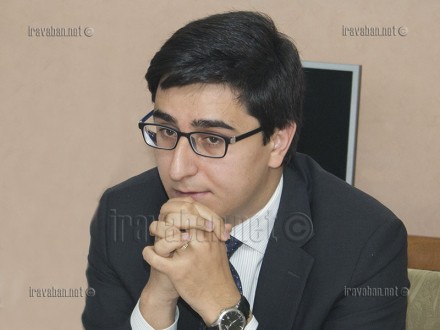Recognition of the fact of genocide by some states does not create direct consequences from the legal aspect. As a derivative of this may be the result that those countries criminalize the denial of genocide. Mr. Yeghishe Kirakostyan, International Law Expert said in the interview with Iravaban.net. He also mentioned that recognition of Genocide by some countries may have mainly a political effect.
According to Mr. Kirakosyan, the sources of the International Law are sufficient from the legal aspect to raise the issue of responsibility for the genocide. ” The fact that we are talking about the events that took place in end of 19th and early 20th century, does not mean that international law did not prohibit genocide. In addition the Ottoman Empire had many obligations, based on which we can confidently state that the apparent violation had occurred, and should be held accountable.”
Yeghishe Kirakosyan also referred to the international legal forums, where the issue of responsibility for the Genocide could be raised. According to him, the main instance is the UN International Court of Justice, but the way to reach it is complicated, because the consent of two countries Turkey and Armenia is necessary to launch the investigation of the case.
European Court of Human Rights is the other instance: The individuals and legal persons who represent their rights may also receive compensation for deprivation of property and other damages. In this case it is necessary to study the evidences attesting deprivation of property, coordinate them and then file a reimbursement claim to the court in Turkey. case study evidence attesting to the deprivation of properties and coordinate, then reimbursement claims court in Turkey, and only after exhausting all local remedies it may be possible to apply to the European Court of Human Rights.















